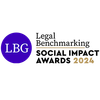On 19th July 2024 the England and Wales Court of Appeal handed down its decision in Comptroller General v Emotional Perception AI Limited, which relates to an appeal from the UKIPO against a decision of the High Court which held that an invention which included an Artificial Neural Network (ANN) would overcome problems with patentability exclusions and therefore could be patented.
In summary, the Court of Appeal overturned the lower court and held that the mere presence of an ANN in an invention is not enough to evade exclusion from patentability.
That is to say, it is not enough to simply include an ANN in an invention to get around the UKIPO’s famously strict approach to examining AI-based inventions. However, given this decision, where is the line?
The UK approach to assessing patentability is assessed using the 4-step Aerotel test:
- Properly construe the claim
- Identify the actual or alleged contribution
- Ask whether it falls within the excluded matter
- Check whether the contribution is actually technical
Typically, where AI inventions are concerned, assuming the first three steps are successfully navigated, the final step involves asking whether the AI has an effect on a technical process outside of the computer which is running the ANN. However, it could also ask whether the AI improves the computer in some technical way, e.g., improved memory.
This can be frustrating to deal with in practice, but it does give us direction in assessing where the line is between patentable and non-patentable subject matter in UK practice and the Emotional Perception decision emphasizes this.
In other words, to improve the chances of navigating around the UKIPO’s famously strict way of approaching patentable subject matter, patent applicants seeking protection for their AI need to ensure that their AI is impacting a technical process. This could be, for example, using AI to assist with image recognition or medical diagnostics. Put simply, the AI, however it is defined, needs to be connected to a technical process outside of the ANN to improve the chances of getting a patent for an AI invention in the UK.
In view of this decision, the UKIPO will look to this result in its day-to-day assessment of patent applications relating to ANN and computer programs. Indeed, already the previous practice direction issued 29th November 2023 has been suspended. We are expecting new guidance to be issued for UKIPO examiners in the very near future.
While we welcome clarity and guidance for both applicants and examiners alike, this latest decision and computer program definition feels less progressive than we had hoped. Applicants will still need to consider carefully their filing strategies and approach for best protection.
The European Patent Office (EPO) may see the benefit as users of the patent system revert to and continue to seek, protection through the European Patent Convention at the EPO, with what some consider to be more settled case law in this area.
If you are considering patent protection for your AI invention, please speak with one of our patent attorneys specializing in the AI field, who can guide you on your chances of successfully navigating these nuances of UK patent practice.



















